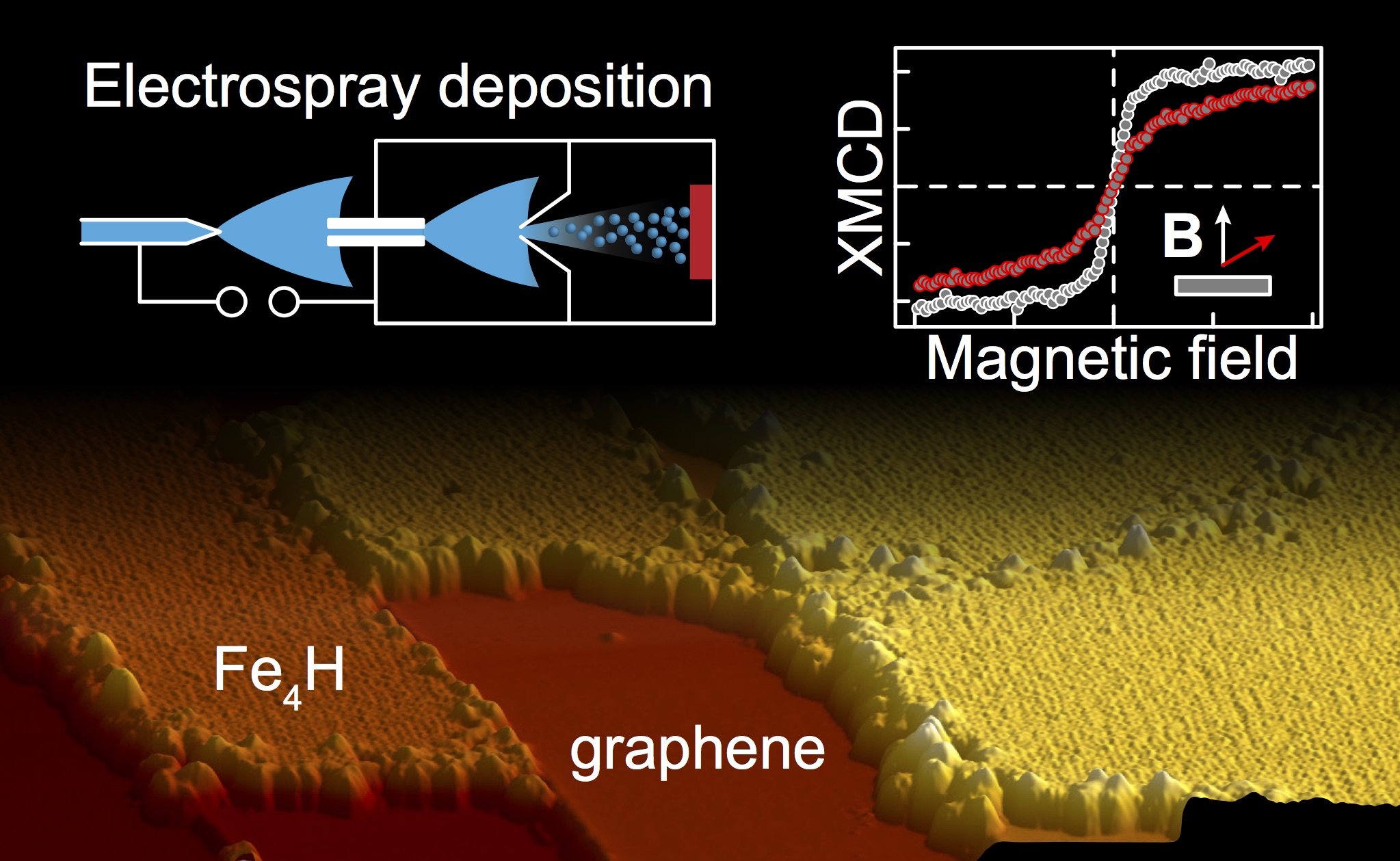
Fabian's paper online (Quantum Mater Res. 2020)
Electrospray Deposition and Magnetic Properties of Prototypical Molecular Magnets
F. Paschke, P. Erler, L. Gragnaniello, J. Dreiser and M. Fonin
Quantum Mater Res. 2020;1:e200002
The controlled deposition, characterization and manipulation of single molecule magnets (SMMs) on surfaces is one of the crucial points to be addressed with regard to their possible implementation as functional units in future electronic and spintronic devices. Profound understanding of molecule-molecule and molecule-substrate interactions is required as well as unraveling their effect on the molecular electronic and magnetic properties. Local measurement techniques like scanning tunneling microscopy (STM) together with ensemble-averaging methods like X-ray absorption spectroscopy (XAS) have been proven to set up an appropriate frame to study these materials. The majority of these studies deal with SMMs that exhibit rather simple structures with mostly only one magnetic ion. The situation gets more complicated when it comes to larger polynuclear compounds that can be quite fragile with respect to surface deposition or not easy to organize on surfaces due to their bulky ligand shell. Here, we provide an overview of our results on successful deposition of polynuclear SMMs on functional surfaces by employing the electrospray ion beam deposition method. For two prototypes in the field, Mn12-ac and Fe4H, we obtain highly ordered submonolayers on functional surfaces and elucidate the electronic coupling to the respective substrates using scanning tunneling spectroscopy (STS). New results for Mn12-ac on graphene/Ir(111) and for Fe4H on Au(111) are compared to previous studies on a decoupling graphene layer. X-ray magnetic circular dichroism (XMCD) measurements on submonolayers of uniformly aligned Fe4 molecules on both substrates reveal its robust magnetism, showing magnetic anisotropy values similar to bulk.
